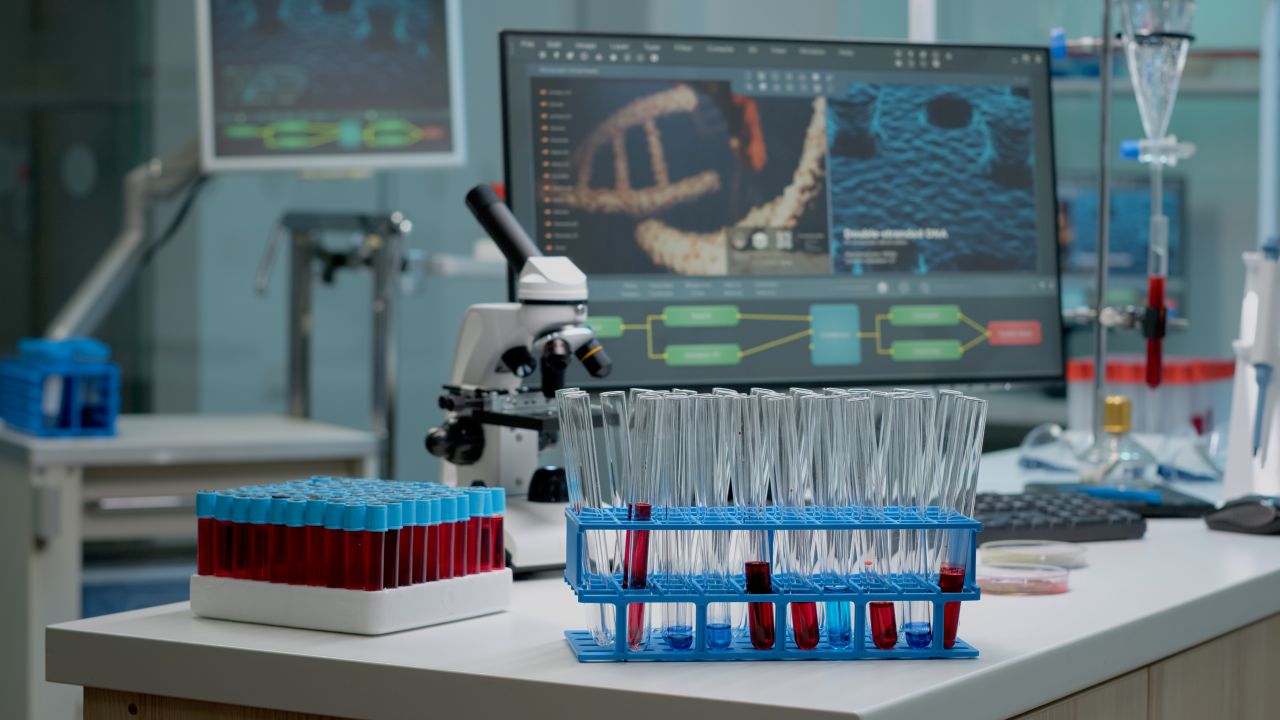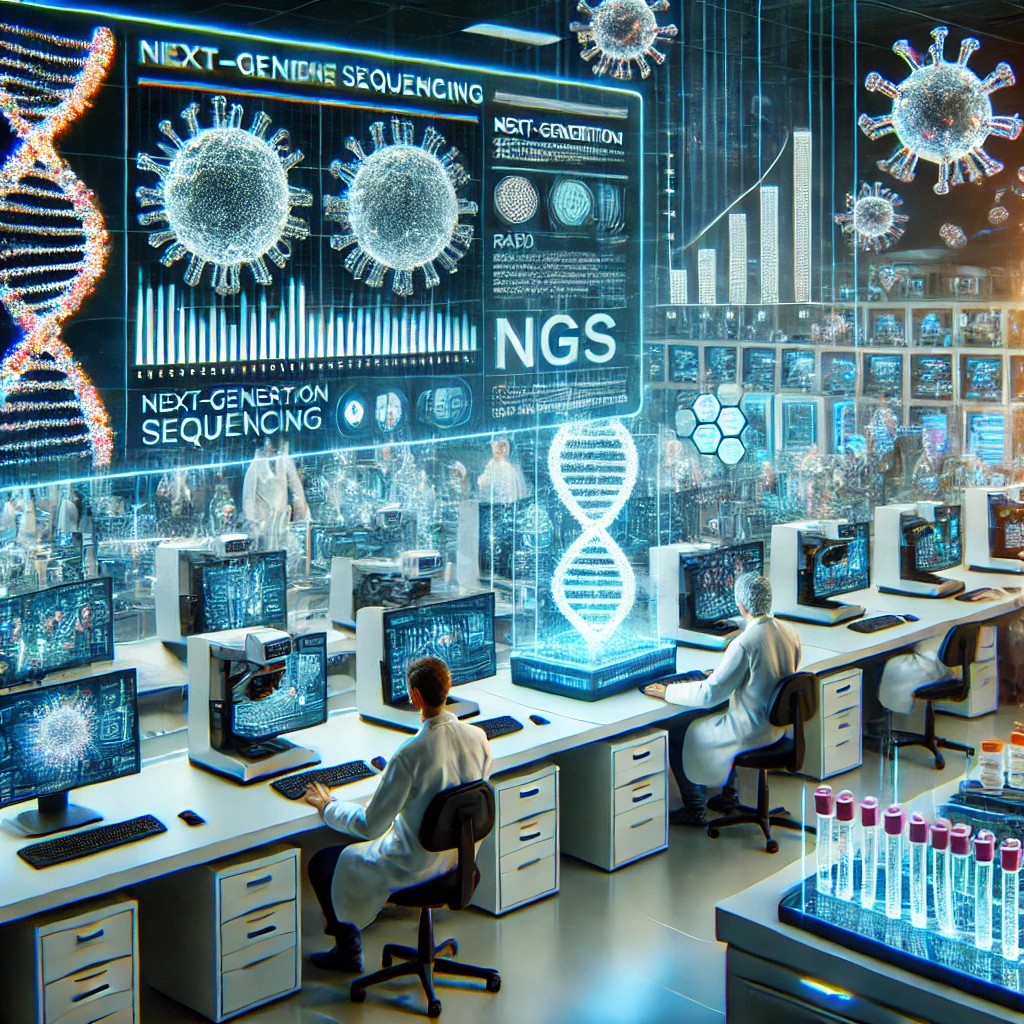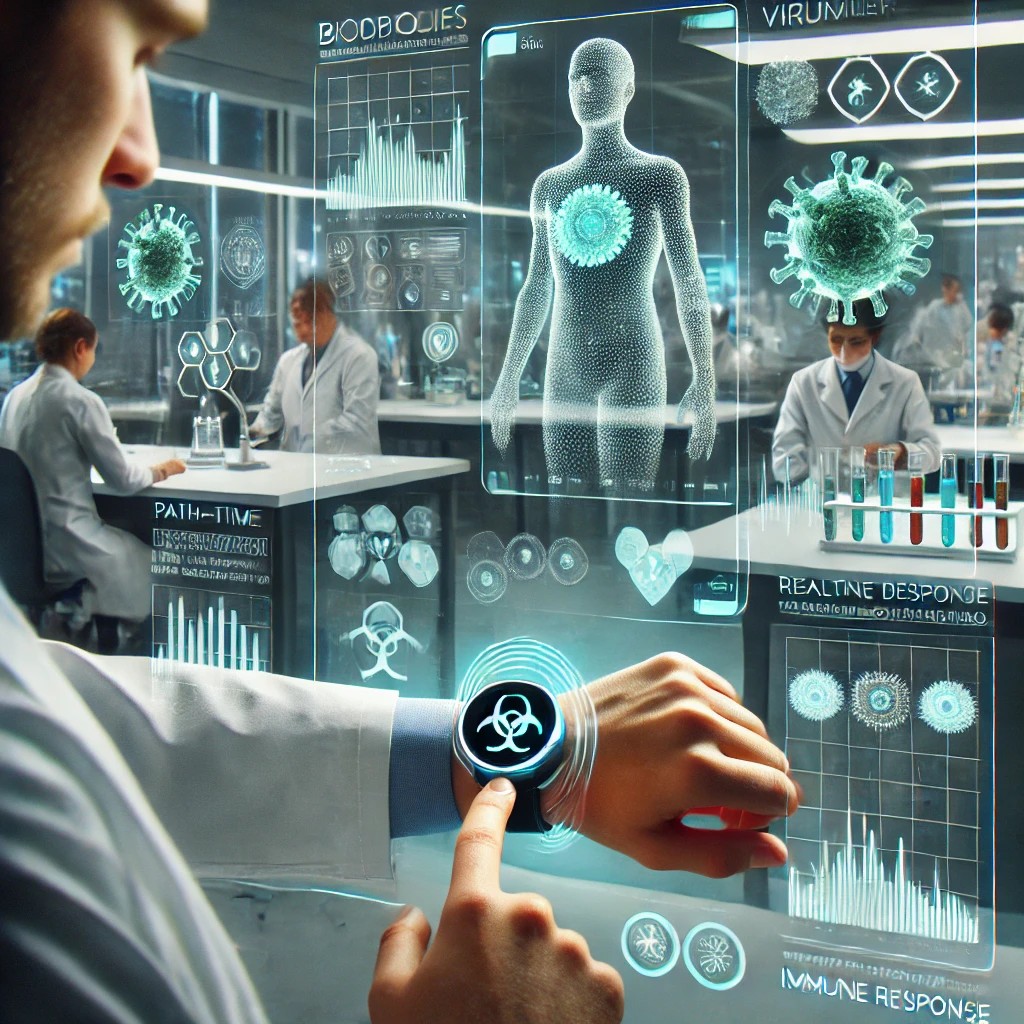Introduction
The microbiology and virology research industry are undergoing a rapid transformation driven by cutting-edge technological advancements. As the world continues to face emerging infectious diseases and antimicrobial resistance, the need for faster, more accurate, and scalable research methodologies has never been greater. Innovations in artificial intelligence, next-generation sequencing, lab automation, and bioinformatics are revolutionizing how scientists study microorganisms and viruses.
These technologies are not only improving diagnostic capabilities but also enhancing vaccine development, therapeutic interventions, and public health responses. With global health threats increasing, the ability to quickly identify pathogens, understand their genetic structures, and develop countermeasures is crucial. This article explores the top technology trends that will shape the field of microbiology and virology research in 2025 and beyond.
1. Artificial Intelligence and Machine Learning in Pathogen Detection
Artificial Intelligence (AI) and Machine Learning (ML) are playing a transformative role in pathogen detection and classification. These technologies are capable of processing vast datasets, identifying microbial and viral strains, and predicting disease outbreaks with remarkable accuracy. AI-driven diagnostic tools, such as deep learning models, can analyse microscopic images, detect anomalies in biological samples, and classify pathogens faster than traditional methods.
Moreover, AI-powered platforms are being integrated with cloud-based databases, allowing researchers to compare newly identified strains with global data in real-time. This enhances early warning systems for epidemics and pandemics, significantly improving global disease surveillance. Additionally, AI can assist in antibiotic resistance studies by predicting how bacteria might evolve and develop resistance to current treatments.

2. CRISPR and Gene Editing Advancements
CRISPR-Cas9 technology is revolutionizing virology and microbiology research by enabling precise gene modifications. This gene-editing tool is being used to develop targeted antiviral therapies, engineer resistant organisms, and create novel vaccines. By modifying viral genomes, scientists can weaken or deactivate pathogens, paving the way for new treatments against deadly infections.
CRISPR is also facilitating synthetic biology applications where researchers engineer bacteria and viruses to act as delivery systems for therapeutic agents. Furthermore, it is being explored for gene therapy applications, such as editing human genes to provide resistance against infections like HIV and hepatitis. With ongoing advancements, CRISPR-based diagnostics are also emerging, offering rapid and cost-effective pathogen detection.
3. Next-Generation Sequencing (NGS) for Rapid Genome Analysis
Next-Generation Sequencing (NGS) technology is making genome sequencing faster, more accurate, and cost-effective. This is crucial for identifying new viral strains, tracking mutations, and understanding pathogen evolution. By sequencing an entire microbial genome within hours, researchers can better understand how infectious agents spread and adapt.
During outbreaks, NGS helps epidemiologists trace the source of infections and track transmission patterns in real-time. This was evident during the COVID-19 pandemic, where NGS played a critical role in identifying new variants and assessing their impact on vaccine efficacy. As sequencing technology continues to advance, it will further enhance personalized medicine approaches and improve our understanding of microbial diversity.

4. Lab-on-a-Chip and Microfluidics
Lab-on-a-chip (LOC) technology is revolutionizing microbiological testing by miniaturizing laboratory functions onto a single chip. These microfluidic devices allow for rapid, on-site analysis using minimal sample volumes, making them ideal for field diagnostics and remote locations where traditional lab infrastructure is unavailable.
LOC devices are being integrated with biosensors to detect bacterial and viral infections within minutes, reducing diagnostic turnaround times. They also facilitate real-time monitoring of microbial activity in environmental and clinical settings, aiding in faster decision-making during outbreaks. The portability and affordability of these devices make them essential tools for global health initiatives.
5. Synthetic Biology and Bioengineering
Synthetic biology is reshaping microbiology and virology research by enabling scientists to create artificial viruses for vaccine development, engineer bacteria for drug production, and design microbes for environmental applications. By modifying biological systems, researchers can develop novel antimicrobial agents and explore innovative approaches to disease treatment.
For instance, synthetic biology is being used to produce engineered probiotics that can target harmful bacteria in the gut while maintaining a balanced microbiome. Additionally, bioengineered bacteria are being utilized for bioremediation, breaking down pollutants and toxins in the environment. These applications highlight the potential of synthetic biology to go beyond medicine and address broader biological challenges.

6. Quantum Computing in Microbial Research
Quantum computing is set to revolutionize computational biology by enabling the simulation of complex biological interactions at an unprecedented scale. Unlike classical computing, which struggles with massive datasets, quantum computing can model microbial processes, predict mutations, and accelerate drug discovery.
In virology, quantum algorithms can help researchers understand how viruses interact with host cells, allowing for the development of more effective antiviral drugs. This technology holds promise for tackling antibiotic resistance by simulating bacterial adaptations and identifying potential weak points for targeted treatments.
7. Wearable Biosensors for Real-Time Monitoring
Wearable biosensors equipped with nanotechnology are emerging as game-changers in disease monitoring. These devices can detect biomarkers in sweat, saliva, or blood, providing non-invasive diagnostic solutions.
For example, biosensors capable of detecting respiratory infections can alert individuals and healthcare providers about potential exposure, facilitating early intervention. Wearable devices are also being explored for monitoring chronic infections, enabling personalized treatment plans based on real-time data.

8. Robotics and Automation in Laboratories
The integration of robotics and automation is significantly enhancing efficiency in microbiology research. Automated systems are handling repetitive tasks such as sample processing, culturing, and high-throughput screening, reducing human error and increasing laboratory productivity.
With AI-driven robotic arms, researchers can conduct experiments around the clock, accelerating data collection and analysis. These advancements are especially beneficial in pandemic response efforts, where rapid testing and vaccine production require high-throughput capabilities.
9. Digital Twin Technology in Virology Research
Digital twins—virtual replicas of biological systems—are providing new insights into virology research. By simulating viral behaviour within human cells and environments, scientists can predict how infections will spread and how different treatment strategies will perform.
This technology is aiding vaccine development by allowing researchers to test potential formulations in silico before conducting physical trials. It also enhances pandemic preparedness by enabling scenario modelling and response planning.

10. Blockchain for Secure Data Sharing
Blockchain technology is improving data integrity, security, and collaboration in microbiology research. By using decentralized data-sharing platforms, scientists can securely exchange genomic data, clinical trial results, and epidemiological findings.
This transparency fosters global cooperation in studying infectious diseases and enhances the credibility of research findings. Additionally, blockchain is being explored for tracking vaccine distribution, ensuring authenticity and preventing counterfeiting.
Conclusion
As we move into 2025, technological advancements will continue to redefine microbiology and virology research, making it more efficient, precise, and impactful. From AI-powered data analysis to automated laboratory systems, these innovations are accelerating the pace of discovery and improving our ability to combat infectious diseases.
By embracing these trends, researchers and healthcare professionals can develop more effective treatments, strengthen disease surveillance, and contribute to global health security. The future of microbiology and virology research is bright, with technology playing a pivotal role in shaping the next generation of scientific breakthroughs.
